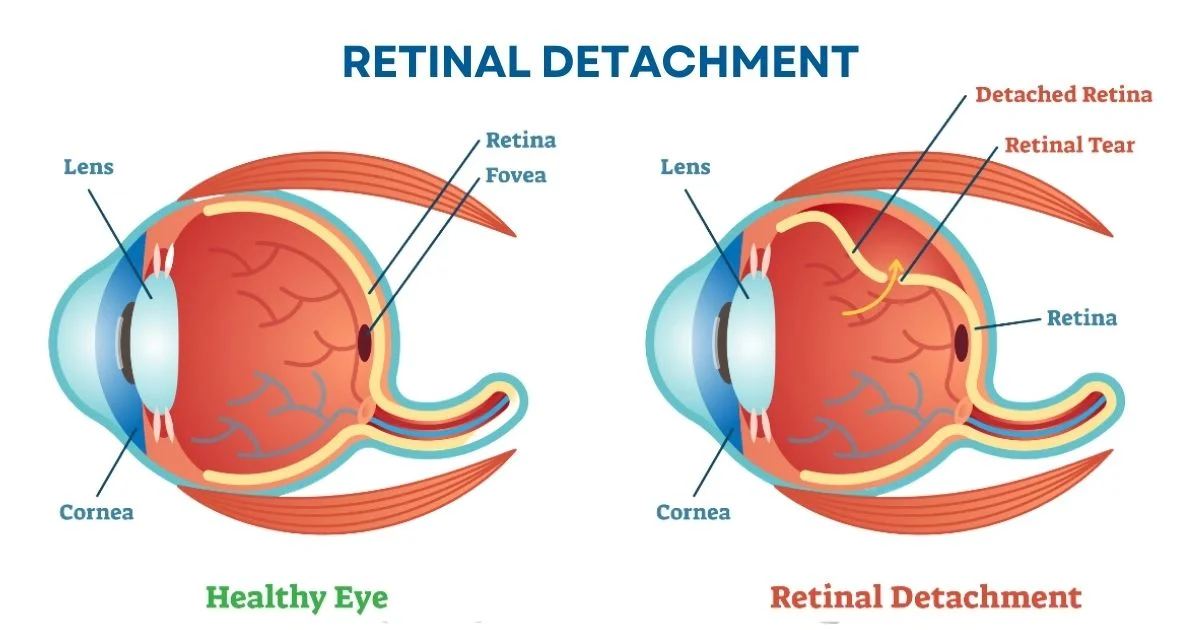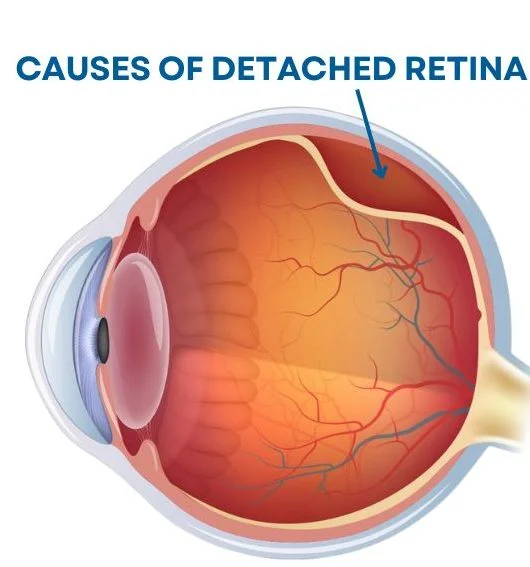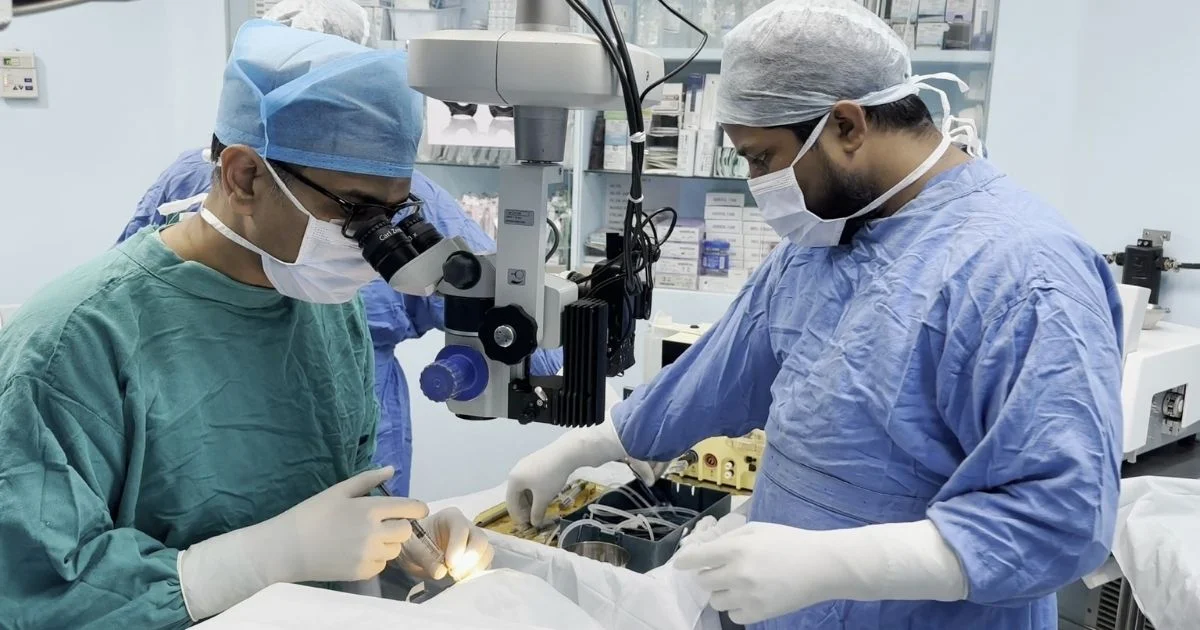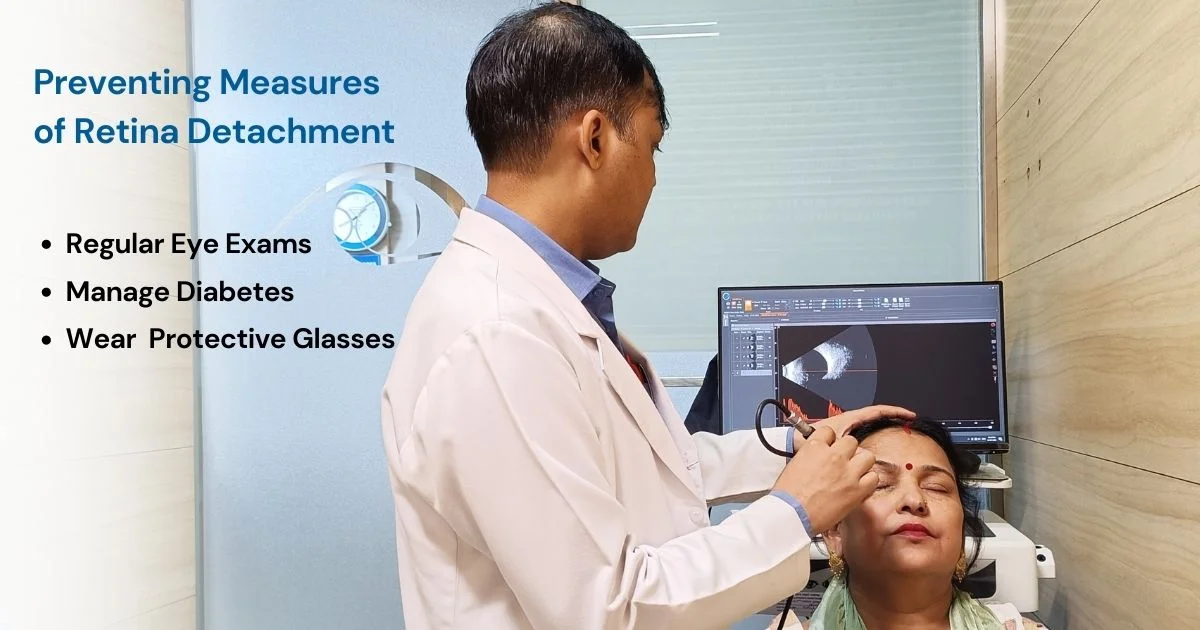If you're in Delhi and facing retina detachment issue, then it is crucial. Our expert team specialises in quick diagnosis and effective treatment. Whether it's due to ageing, an injury, or an existing eye condition, we've got you covered. We focus on regular eye check-ups and protective measures, ensuring your eyes stay healthy.
Choosing us means choosing top-notch care and advanced treatments right here in Delhi. Don't ignore the signs – reach out to us for reliable and easy-to-understand solutions to retina detachment.
Think of your eyes like cameras. Picture the back of each eye having a thin layer called the "retina." This part acts like film in cameras, capturing the images you see and sending them to your brain for understanding.

Now, sometimes, this layer at the back of your eye can start peeling away, just like a sticker from a wall. This is what we call "retinal detachment." It's like a part of your camera not working properly. Doctors might find this issue by checking for problems in blood vessels or the thickness of the retinal pigment epithelium.
When the retina gets stretched out, it can make your vision blurry, like being in a dimly lit room. You might notice flashes of light or shadows covering part of what you see. Imagine it like a puzzle piece being separated from the others – it causes distortion, and suddenly things aren't clear anymore.

Remember, understanding these causes is crucial in preventing this serious eye condition.
Identifying the signs is crucial for early intervention. Symptoms include:
If you experience any of these symptoms, seeking immediate medical attention is vital.
Not only in Delhi, wherever you are, timely treatment is essential to prevent further vision loss. The treatment approach depends on the severity of the detachment:

While not all detachments can be prevented, there are steps you can take to lower your risk:

| Aspect | Retinal Detachment | Retinal Tear |
|---|---|---|
| Description | The retina peels away from the back wall of the eye. | A small section of the retina is torn. |
| Sensation | Often described as a sudden "curtain" over vision. | May cause sudden onset of floaters and flashes. |
| Vision Changes | Significant vision loss in the affected area. | Vision changes might be less severe. |
| Urgency | Requires immediate medical attention as it can lead to permanent vision loss. | Also needs prompt attention, but might not always lead to detachment. |
| Treatment | Usually requires surgery to reattach the retina. | Might heal on its own, but laser treatment or cryotherapy can be used. |
| Risk Factors | Age, family history, previous eye surgeries, severe nearsightedness. | Similar risk factors, but often occurs due to injury or aging. |
| Outcome | Can result in permanent vision loss if not treated promptly. | Can progress to detachment if not treated. |
| Severity | More severe and sight-threatening. | Generally less severe, but still concerning. |

So if you have diabetes and your eyes begin acting strange, take note: they are telling you something! And once they do, doctors can help restore clear vision!
Ans. Yes, it can often be treated, especially if detected early. Timely medical intervention, usually through surgery, is crucial for a successful recovery.
Q.2 Can a detached retina be fixed without surgery?Ans. The recovery time can vary depending on the severity of the detachment and the chosen treatment. It may take a few weeks to months for the eye to heal completely.
Q.3 Can you fully recover from retinal detachment?Ans. Yes, many people can fully recover from retinal detachment, especially with prompt and appropriate medical attention. However, the extent of recovery may vary from person to person.
Q.4 Is retinal detachment serious?Ans.Yes, retinal detachment is a serious condition that requires immediate attention. If left untreated, it can lead to permanent vision loss.
Q.5 Is retina damage permanent?Ans. That depends. If retinal damage is treated early and quickly, chances are it could recover, while if left unaddressed the damage may remain permanently.
Q.6 Can you live a normal life after retinal detachment?Ans. Most individuals can resume their daily activities once treated, provided that proper eyecare is practiced and regular checkups are scheduled.
Q.7 What is the recovery time for a detached retina?Ans. The recovery time varies, but it typically involves a period of rest and follow-up appointments with your eye care specialist.
In conclusion, retinal detachments are a serious eye condition that requires prompt attention and treatment. Being aware of the causes, symptoms, and available treatments can empower you to take action in preserving your vision. If you suspect any signs, consult an eye care professional immediately to ensure the best possible outcome for your eye health journey.
Copyright © 2025 | Save Sight Centre | All Rights Reserved.